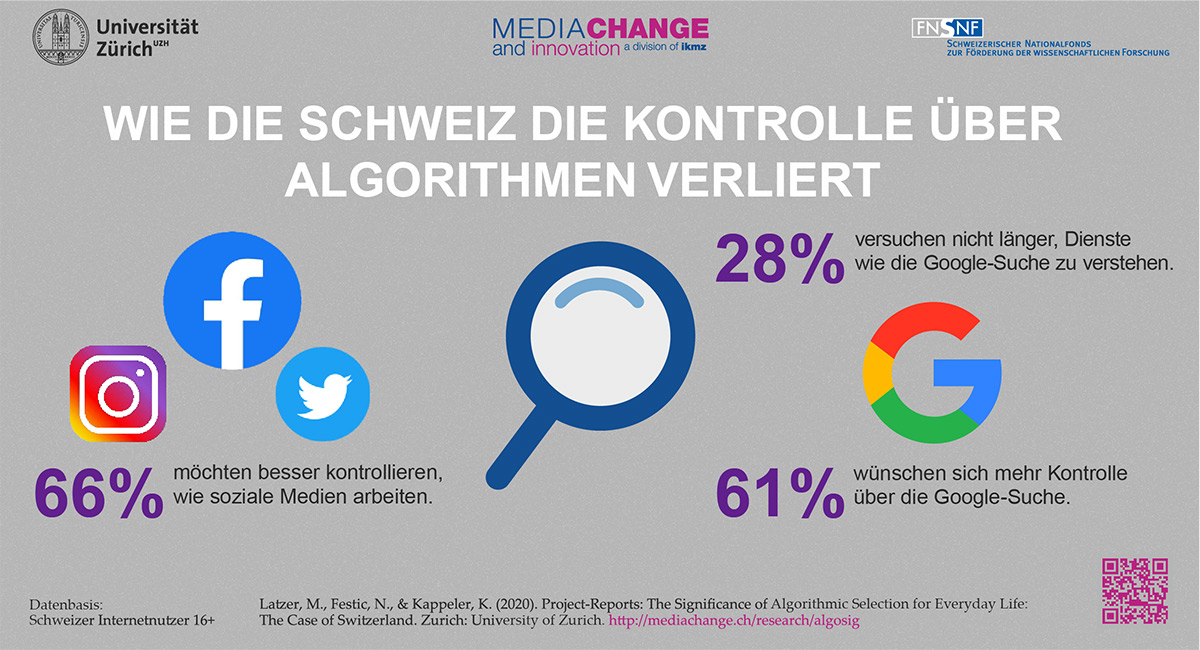How people and algorithms communicate

On many websites algorithms decide which information is presented to us an which not. But few people know how algorithms work and where they are used. How good is your knowledge of algorithms and can you distinguish true from false information?

We send videos to each other on WhatsApp, search something on Google or watch news on YouTube. Digital media are used by humans, but controlled by machines. What information spreads in society and what we see and what we don’t – algorithms help decide.
Find out at our booth in which media algorithms are used and how we can distinguish reliable from false information in algorithmic media on the Internet.
75% of Swiss claim they understand the term algorithm. But many do not know where and how algorithms are actually used. Who compiles the newsfeed on Facebook? And how do the search results on Google come about? Do you know?
Get to know what type of media user you are in just a few steps and find out whether algorithms are particularly important in your media consumption. Take for example a retired person who constantly watches videos on YouTube: For her, algorithms are very important in everyday life – but she is the exception in her age group. What about you?
Take the role of a news editor and find out whether you can distinguish reliable from false information when researching on the Internet. A table with the correct election results from the USA or a video with the false claim that the elections in the USA were rigged – What do you actually come across on the first page on Google when you search for information? And what do you rely on?

